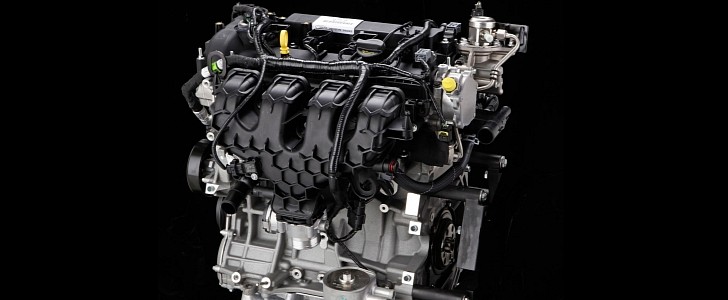2009 is the year when the first EcoBoost powerplant rolled off the production line. More than a decade later, Ford still hasn’t fixed the issue affecting four-cylinder engines marketed under this name.
“Reed, et al., v. Ford Motor Company” is the latest in a long line of class-action lawsuits, and this time around, the plaintiffs claim that coolant enters the cylinders of the engine. Not only does it cause corrosion, but this condition also contaminates the engine oil, leading to expensive repairs.
Represented by Berger Montague PC and Capstone Law APC, the plaintiffs also claim that “the design and poor manufacturing of the engine block and cylinder head” allow the coolant to leak into the combustion chambers.
“The use of an inadequate seal on the cylinder head” doesn’t help either, and I’m not surprised. Lest we forget, Ford recalled the Focus RS over a head gasket failure on vehicles with less than 10,000 miles on the odometer.
But the class-action lawsuit filed with the U.S. District Court for the District of Delaware goes further than the alleged defects. The 74-page document that you can check for yourself at the end of this story also refers to “temporary stop-gap remedies such as installing coolant level sensors.”
Whichever way you look at it, a sensor does not prevent the coolant from leaking into the engine. Ineffective repairs and replacement parts do not address the cause of the defect, so yeah, the plaintiffs do have a point.
The plaintiff who started the class-action lawsuit was asked $10,000 for an engine replacement for his 2016 Ford Edge. After telling the service technician that he considers getting rid of the vehicle, Reed was quoted a reduced replacement cost of $7,718. The Blue Oval refused to cover a single cent, and alas, the EcoBoost-engined SUV continues to be defective.
Given how many technical service bulletins were issued for this problem, I still can’t understand why Ford Motor Company refuses to acknowledge the issue. SSM 47204, which covers the 2016 Ford Edge, mentions “coolant intrusion due to corrosion on the engine block.”
Another bulletin, namely SSM 47462, advises the service technician to “investigate the head gasket interface, cylinder block, and head.” Once again, Ford doesn’t provide a reason for the abnormal coolant consumption that leads to EcoBoost four-cylinder turbo engines giving up the ghost.
In order of displacement, the mills included in this class-action lawsuit are the 1.5-, 1.6-, and 2.0-liter EcoBoosts. In addition to the Edge, these babies equip the Fusion, Escape, the Lincoln MKZ, and the MKC crossover.
Represented by Berger Montague PC and Capstone Law APC, the plaintiffs also claim that “the design and poor manufacturing of the engine block and cylinder head” allow the coolant to leak into the combustion chambers.
“The use of an inadequate seal on the cylinder head” doesn’t help either, and I’m not surprised. Lest we forget, Ford recalled the Focus RS over a head gasket failure on vehicles with less than 10,000 miles on the odometer.
But the class-action lawsuit filed with the U.S. District Court for the District of Delaware goes further than the alleged defects. The 74-page document that you can check for yourself at the end of this story also refers to “temporary stop-gap remedies such as installing coolant level sensors.”
Whichever way you look at it, a sensor does not prevent the coolant from leaking into the engine. Ineffective repairs and replacement parts do not address the cause of the defect, so yeah, the plaintiffs do have a point.
The plaintiff who started the class-action lawsuit was asked $10,000 for an engine replacement for his 2016 Ford Edge. After telling the service technician that he considers getting rid of the vehicle, Reed was quoted a reduced replacement cost of $7,718. The Blue Oval refused to cover a single cent, and alas, the EcoBoost-engined SUV continues to be defective.
Given how many technical service bulletins were issued for this problem, I still can’t understand why Ford Motor Company refuses to acknowledge the issue. SSM 47204, which covers the 2016 Ford Edge, mentions “coolant intrusion due to corrosion on the engine block.”
Another bulletin, namely SSM 47462, advises the service technician to “investigate the head gasket interface, cylinder block, and head.” Once again, Ford doesn’t provide a reason for the abnormal coolant consumption that leads to EcoBoost four-cylinder turbo engines giving up the ghost.
In order of displacement, the mills included in this class-action lawsuit are the 1.5-, 1.6-, and 2.0-liter EcoBoosts. In addition to the Edge, these babies equip the Fusion, Escape, the Lincoln MKZ, and the MKC crossover.

